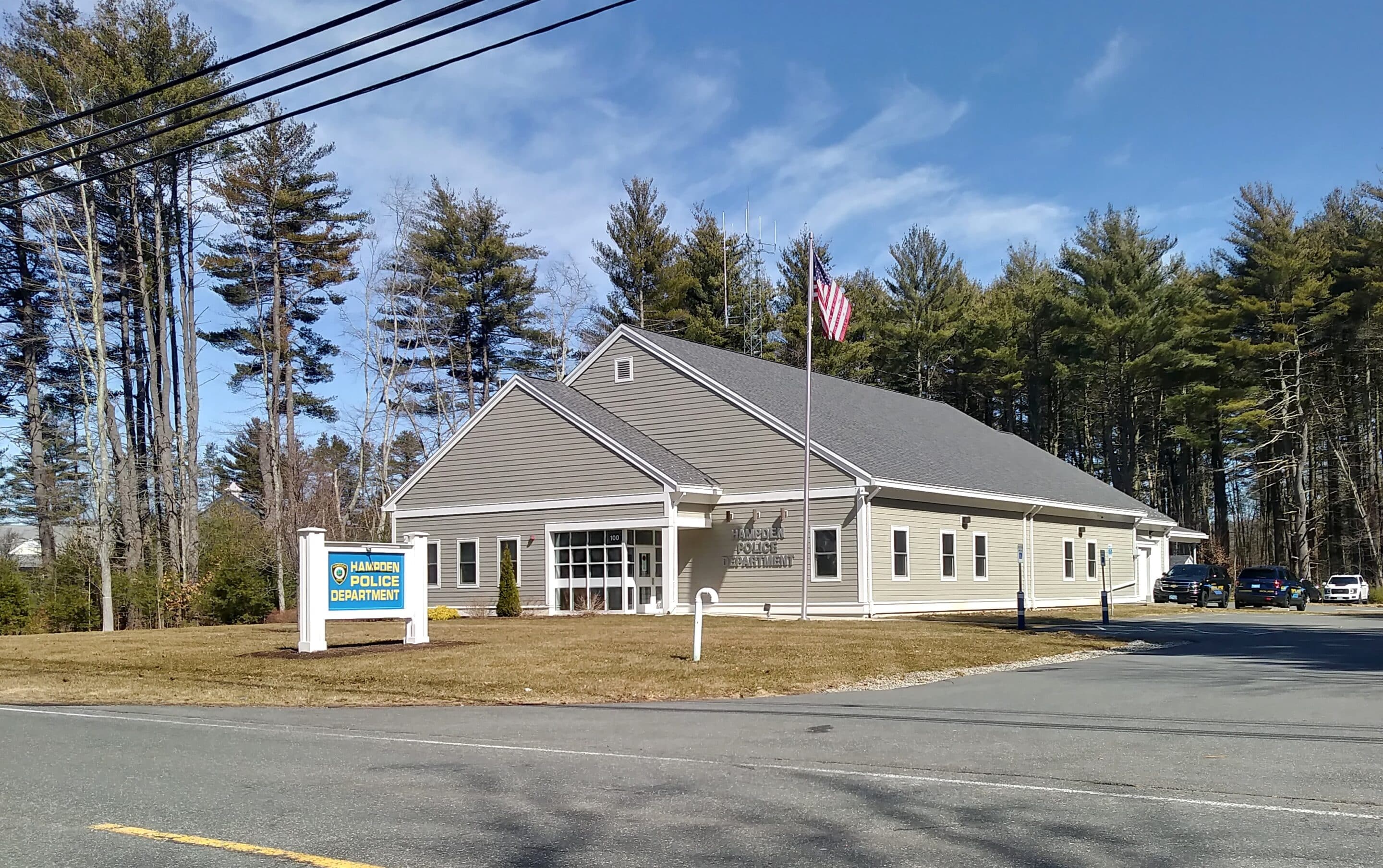HAMPDEN — The town of Hampden received applications for 12 people seeking to fill the police chief position vacated by Scott Trombly on July 17.
Town Administrator Brian Domina said that the applications had been turned over to the firm Public Safety Consultants, which is running the search for the town.
The firm will narrow the field to four or five candidates who will be sent to a public safety assessment center.
Trombly is continuing to serve in an interim capacity until his successor is hired. At the Aug. 4 Selectboard meeting, he asked the board to reconsider paying out his career educational incentive. In 1970, Massachusetts passed the Quinn Bill, now known as the Police Career Incentive Pay Program. It provides a financial incentive to police officers who seek law enforcement or criminal justice degrees. While the Quinn Bill was defunded under Gov. Deval Patrick in 2009, officers who were subject to it still receive their increased base pay. The funding is paid in the fiscal year after it was earned.
Because Trombly is retiring, he requested that he receive his remaining fiscal year 2026 incentive pay. This covers the period from September, when his employment with the town ends, to June 30, 2026. Trombly would receive about $22,000 for that period. Trombly said that his predecessor, Jeffrey Farnsworth, received the Quinn Bill pay for his final year.
Selectboard member Donald Davenport said, “We’ve got the money in there, there’s precedent, you’ve served the town for 31 years.” Based on that, he motioned for the funds to be paid. Chair John Flynn and Selectboard member Erik Vanderleeden agreed.
Domina said two other town positions were filled. A total of 16 people applied for the part-time accountant position. Four applicants were interviewed by Domina and other pertinent members of the staff, and a candidate was recommended to the Selectboard. Similarly, Herb Foley was recommended for the facilities manager position from a total of 29 applicants, four of whom were interviewed for the position. Flynn, who served on the team that screened the candidates, explained that Foley’s knowledge of the former Thornton W. Burgess School, which will house the town offices in the future, was a “critical” factor in the recommendation to hire him. Both employees were approved by the Selectboard.
Highway Superintendent Mark Langone said the town would be receiving more Chapter 90 state aid for roadwork than expected. The town is set to receive $550,589, 50% more than in recent years. The funding is based on a formula that uses miles of road in a municipality to determine the amount of aid. Between state and local funds, the Highway Department has $990,000 for road paving projects this year.
Langone asked the Selectboard to approve several paving projects. He said he would also be bringing a project to the board that had been deleted from the plan before the full extent of funding was known. Flynn said the list of projects seemed “pretty straightforward.”
Flynn asked about the timeline for the South Road bridge project. Langone said the town had been negotiating with the first engineer on the project how much of the cost Hampden would bear. “It just kept going up and up and up,” he said. After a new engineer came on board, the cost to the town was decided at $233,000. The project will go out to bid in the fall and work will begin in the spring, Langone said.
Flynn said the town was “grateful that the state is giving us half a million [dollars] toward the bridge thing. The South Road bridge is one of three in town for which the state is helping to fund repairs.
The board rejected a proposal by National Grid to place seven poles along Glendale Road in Hampden. The electrical line, which begins in Wilbraham, is slated to be upgraded to a “three-phase spacer,” which has a smaller footprint than the existing electrical cables and would provide more reliable power to the end of the line, said National Grid’s Keegan Lynch.
Davenport pointed out that the Conservation Commission ruled in 2024 that two poles called for on the plan could not be installed until the solar array on Glendale Road was approved, which had not happened. Lynch acknowledged this and said that, despite being on the plan, National Grid planned to abide by the ruling and wait to install the final two poles.
Flynn said National Grid’s work to improve reliability in the area was “terrific,” but added, “It just seems like this is oddly coincidental” that the line upgrades end at the proposed solar array.
The board denied the application on the basis that it was “wrong” because it included the two poles. He told Lynch National Grid could submit a new application once the issue is fixed and the board will discuss it at a future meeting.



